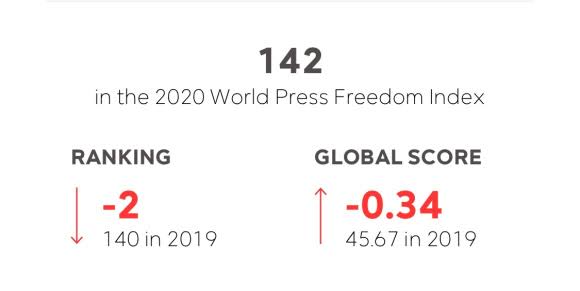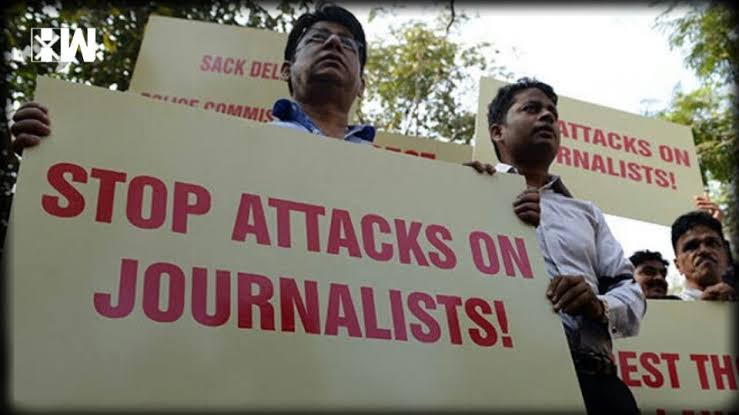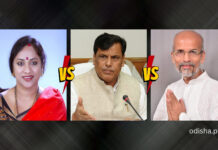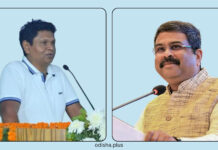Aishwarya Samanta
Ghaziabad based reporter Vikram Joshi was shot in the head on Monday night by a group of men who ambushed him before his two teenaged daughters, succumbed to his wounds early Wednesday morning. Few days ago, Vikram had lodged a complaint against some miscreants who tried to molest his niece. And within some days, he is brutally murdered. What was his fault? Wasn’t he supposed to raise voice against the wrong doing? If a journalist has to go through such cruelty, where will the common man go?

We need to understand that Freedom of Press is nothing without freedom of a journalist. During situations like assault or attempt to life on a journalist, even their employers take back support leaving the journalists high and dry in this nation. According to the listings of 2020 World Press Freedom Index, India stands at a lamentable position of 142 among 180 countries. The numbering is sufficient enough to clarify the mistreatments towards journalists, even though we boast for being the world’s largest democracy.

As per information collected by the Committee to Protect Journalists, 40 reporters have been killed in India since 1992 with the most number of reporters silenced in 1997. Similarly, a report submitted by the CPJ in 2015 expressed, “No administration in India has been a victor of the press. Journalists are not just confronting an expansion in maltreatment via web-based networking media, yet additionally need to confront a great deal of weight while covering certain issues. Inclusion of delicate issues and regions like Kashmir has been an issue.
The circumstance is really disturbing and would affect the working of the popularity based foundations in the nation. It is crippling to see that none of the instances of killings of journalists were sought after further. As a rule, the organizations distance themselves from the incident and the killed journalist is regularly ignored. Battling debasement has been perhaps the greatest guarantee on the plan of all the ideological groups in India yet no ideological group has taken any measure to guarantee the security of writers who move in the direction of uncovering the defilement and bad behavior. With the current scenario, the press in the nation will find it easier to perish than to survive.

By a wide margin, the wellbeing and security of journalists was never part of a genuine discussion among Indian media houses or Indian news coverage training. The nation’s size and populace has likewise made it hard for the law to serve equity to the killed. The law makers and practitioners are exhausted with cases, prompting numerous cases going unnoticed.
At the point when writers raise such issues, they are frequently informed that the ascent in such maltreatment or assaults at any rate incompletely mirrors the declining values of the Indian media.
Be that as it may, the rising reach of Indian media in the course of recent decades has been joined by more noteworthy trust in it. It is no one’s case that Indian journalists are trustworthy, yet the drawn out patterns recommend that their believability has been ascending after some time.
(Author is an alumni of IIMC, Dhenkanal. Views are Personal)





















